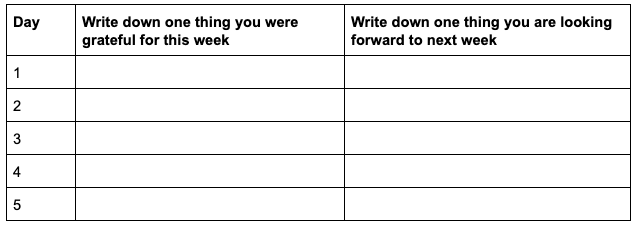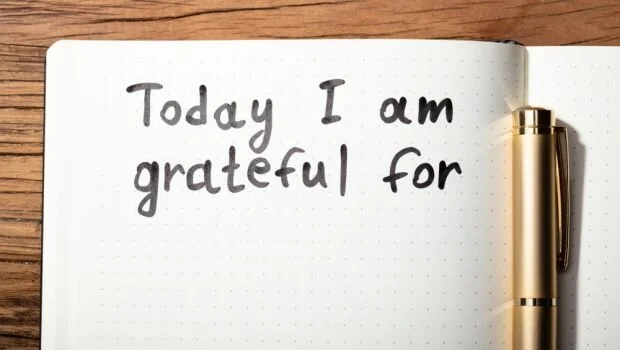
Building Virtuous Habits - Chapter 8
Gratitude
Our brains have a habit of focusing on the things that upset us most. This makes it harder for us to remain in a positive frame of mind. We call this negativity bias. The good news is we can retrain our brains to focus more on the experiences that help us to stay happier.
One area that’s been proven to support our wellbeing is gratitude. When we express our gratitude to others, or for the things we appreciate, we experience the positivity it creates more frequently and for longer durations. In other words, expressing gratitude creates a positive feedback cycle: the more we express it, the more we feel it.
Creating this positive feedback cycle of gratitude works best when we practice it every day, but even expressing gratitude once a week can be enormously beneficial. In fact, gratitude doesn’t just improve our mood, it lowers stress, helps your immune system, and lowers blood pressure. Robert Emmons explains it in greater detail.
One simple tool is to train yourself to say “thank you” more frequently and more sincerely. It may seem strange, or even forced, the first few times but stick with it. After a while, you’ll realise that you have a much sharper sense of the things, moments and exchanges you are grateful for. The people you say thank you to will start to notice it as well. They’ll feel more heard and seen. So expressing gratitude makes you feel better and it spreads to others. Like a pebble dropped into a lake, its positive effects ripple out outwards.
Over the course of the next week choose a time to copy and complete the table below. Don’t forget to set a reminder on your phone or a post it note to help nudge you.
Another powerful way to experience and share gratitude is to write a letter to someone you would like to thank. There are so many examples of people receiving letters from others they have helped, often years after the event: students have written to their former teachers, patients have written to their former carers. There are so many people we’ve encountered, even briefly, who have guided us, helped us, and supported us.
When you write to them try to make your letter as specific as possible: really allow yourself to re-experience the positivity you felt from them. So before you write, give yourself time to revisit your memory. If possible, hand write your letter so that you can really concentrate on being present in the telling of those memories.
Importantly, once you’ve finished writing don’t forget to send the letter. Writing and sending your expression of gratitude will likely made you feel great, and once it arrives, it will allow someone you care about to experience a moment of pure joy.
A variation of this theme is to write a three hundred word testimonial about a person who has had a positive impact on your life. You can then visit that person and read aloud your testimonial to them. It may take some courage for you to do it, and you’re making yourself vulnerable by doing so, but showing courage and vulnerability are two of the most empowering behaviours. Moreover, sharing your written thoughts aloud and directly with the subject of those thoughts will be even more moving for that person.

